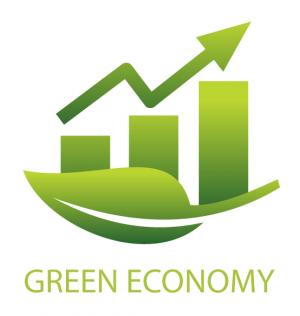Responsible Appliance Disposal (RAD) Program
Description
Source: UNCSD Secretariat (2010) Questionnaire for the Member States on Experiences, Success Factors, Risks and Challenges with Regard to Objective and Themes of UN Conference on Sustainable Development (UNCSD)
As part of the program, EPA serves as a technical clearinghouse on responsible appliance disposal program development and implementation; calculates annual and cumulative program benefits in terms of ODS and GHG emission savings and equivalents and, as available, potential cost savings; and provides partner recognition for achievement, such as through press releases, brochures, articles, and awards. RAD partners include utilities, retailers, local governments, manufacturers, universities, and other interested organizations. In addition to public recognition, joining the program may also serve as a way to document climate efforts, and may help partners meet any voluntary commitments or pledges they may have to reduce greenhouse gas emissions. Partners may also reap additional environmental benefits in the form of reduced energy consumption by encouraging appliance owners to retire old inefficient appliances that may consume between two and four times more energy than new units. State governments may also join the Program as RAD Affiliates, to increase environmental benefits within their states. As Affiliates, States promote the RAD Program to potential partners within their state through information dissemination and strategic outreach. They may also serve as technical resources and provide recognition to Partners within their states.
SDGS & Targets
Goal 8
Promote sustained, inclusive and sustainable economic growth, full and productive employment and decent work for all
8.1
8.1.1
Annual growth rate of real GDP per capita
8.2
Achieve higher levels of economic productivity through diversification, technological upgrading and innovation, including through a focus on high-value added and labour-intensive sectors
8.2.1
Annual growth rate of real GDP per employed person
8.3
Promote development-oriented policies that support productive activities, decent job creation, entrepreneurship, creativity and innovation, and encourage the formalization and growth of micro-, small- and medium-sized enterprises, including through access to financial services
8.3.1
Proportion of informal employment in total employment, by sector and sex
8.4
Improve progressively, through 2030, global resource efficiency in consumption and production and endeavour to decouple economic growth from environmental degradation, in accordance with the 10-Year Framework of Programmes on Sustainable Consumption and Production, with developed countries taking the lead
8.4.1
Material footprint, material footprint per capita, and material footprint per GDP
8.4.2
Domestic material consumption, domestic material consumption per capita, and domestic material consumption per GDP
8.5
8.5.1
Average hourly earnings of female and male employees, by occupation, age and persons with disabilities
8.5.2
Unemployment rate, by sex, age and persons with disabilities
8.6
8.6.1
Proportion of youth (aged 15-24 years) not in education, employment or training
8.7
Take immediate and effective measures to eradicate forced labour, end modern slavery and human trafficking and secure the prohibition and elimination of the worst forms of child labour, including recruitment and use of child soldiers, and by 2025 end child labour in all its forms
8.7.1
Proportion and number of children aged 5‑17 years engaged in child labour, by sex and age
8.8
Protect labour rights and promote safe and secure working environments for all workers, including migrant workers, in particular women migrants, and those in precarious employment
8.8.1
Fatal and non-fatal occupational injuries per 100,000 workers, by sex and migrant status
8.8.2
Level of national compliance with labour rights (freedom of association and collective bargaining) based on International Labour Organization (ILO) textual sources and national legislation, by sex and migrant status
8.9
By 2030, devise and implement policies to promote sustainable tourism that creates jobs and promotes local culture and products
8.9.1
Tourism direct GDP as a proportion of total GDP and in growth rate
8.10
Strengthen the capacity of domestic financial institutions to encourage and expand access to banking, insurance and financial services for all
8.10.1
(a) Number of commercial bank branches per 100,000 adults and (b) number of automated teller machines (ATMs) per 100,000 adults
8.10.2
Proportion of adults (15 years and older) with an account at a bank or other financial institution or with a mobile-money-service provider
8.a
8.a.1
Aid for Trade commitments and disbursements
8.b
By 2020, develop and operationalize a global strategy for youth employment and implement the Global Jobs Pact of the International Labour Organization
8.b.1
Existence of a developed and operationalized national strategy for youth employment, as a distinct strategy or as part of a national employment strategy
SDG 14 targets covered
Deliverables & Timeline
Resources mobilized
Partnership Progress
Feedback
Action Network


